Justice Rights
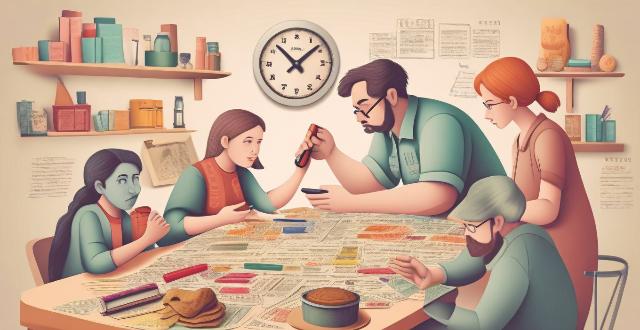
What role do international organizations play in promoting climate justice and human rights ?
International organizations play a crucial role in promoting climate justice and human rights by setting standards, offering technical assistance, facilitating dialogue, monitoring progress, and raising awareness.

What are the key principles of climate justice ?
The text discusses the key principles of climate justice, which emphasizes fair and equitable solutions to climate change. The principles include: 1. **Recognition of Vulnerability** - Acknowledging that some communities are more susceptible to climate change's effects and prioritizing their needs in adaptation measures. 2. **Responsibility and Accountability** - Recognizing developed countries' disproportionate contribution to emissions and advocating for differentiated responsibilities in addressing climate change. 3. **Participation and Access to Decision-Making** - Ensuring all affected communities, including marginalized groups, have a say in climate policy decisions and promoting transparency. 4. **Protection of Human Rights** - Upholding rights to health, water, and food security, which are often threatened by climate change impacts. 5. **Intergenerational Equity** - Considering the rights and needs of future generations and advocating for sustainable development pathways. Overall, climate justice focuses on equity, human rights, and ethical treatment of people, especially those most affected by climate change.
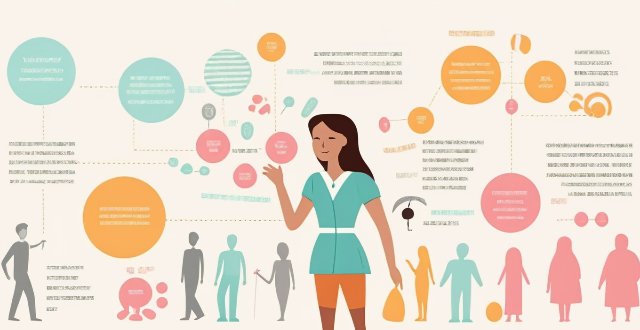
What is climate justice and why is it important ?
Climate justice is a concept that aims to ensure fair treatment for all individuals, communities, and countries in the face of climate change. It involves the equitable distribution of benefits and burdens associated with both climate change mitigation efforts and adaptation strategies. Key aspects of climate justice include equity, recognition, and procedural fairness. Climate justice is important because it helps mitigate unequal impacts, promotes sustainable development, enhances participation and accountability, and fosters global cooperation. In conclusion, climate justice is not merely a moral imperative but also a practical necessity for crafting effective and enduring solutions to the challenges posed by climate change.
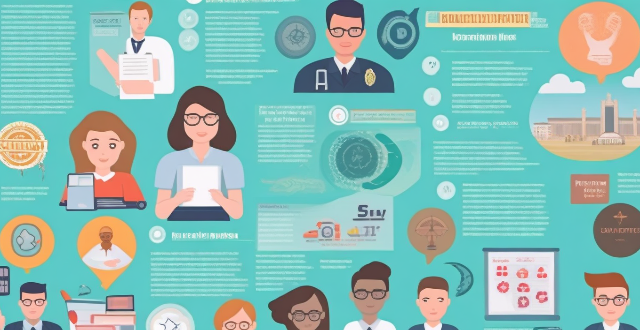
How does educational equity relate to social justice ?
Educational equity and social justice are interconnected concepts that aim to create a fair and just society. Educational equity involves providing equal opportunities for learning and addressing disparities in resources, funding, and support services between schools or communities. Social justice encompasses policies and practices that ensure everyone has equal rights, opportunities, and access to resources while eliminating discrimination based on various factors. The relationship between educational equity and social justice includes addressing systemic inequalities within the education system, providing access to quality education for all students, promoting diversity and inclusion, and empowering students to become agents of change in their communities. By achieving educational equity, we can work towards creating a more just and equitable society.
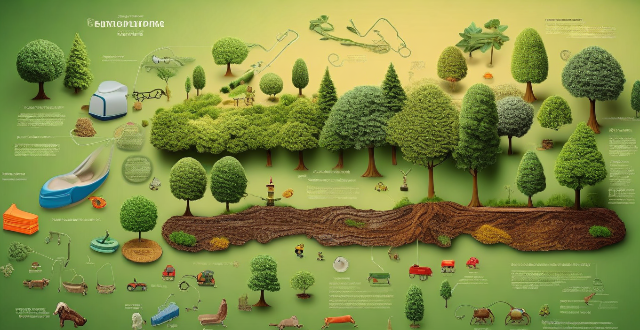
How does climate justice relate to environmental racism ?
This text discusses the interconnected reality of climate justice and environmental racism. It defines both terms, outlines their intersection in terms of historical and structural inequities, disproportionate impacts, mitigation and adaptation inequities, and exclusion from decision-making processes. It then proposes solutions to address this intersection, including promoting participatory democracy, equitable allocation of resources, enforcing environmental justice legislation, and building resilience through education and capacity building. Overall, it emphasizes the need for a more equitable approach to environmental protection and climate action that recognizes and challenges the root causes and impacts of environmental racism within the broader context of climate justice.

In what ways do indigenous communities' rights intersect with climate ethics ?
The text discusses the intersection of indigenous communities' rights and climate ethics, emphasizing the disproportionate impact of climate change on these communities due to their reliance on natural resources and traditional practices. The analysis outlines key points related to land rights, cultural heritage, participatory rights, environmental justice, and responsibility for losses. It argues that recognizing and supporting indigenous rights is crucial for promoting sustainable development and environmental justice, as well as being a moral imperative for effective climate action.

How has the #MeToo movement impacted women's rights globally ?
The #MeToo movement has significantly influenced women's rights globally by encouraging survivors to share their experiences and creating a culture of support. This has led to increased reporting and accountability for perpetrators, as well as heightened awareness about the prevalence and severity of sexual harassment and assault. Many countries have also implemented laws and policies in response to the movement, such as stricter penalties for perpetrators and protections for survivors. However, there are still challenges and limitations to its effectiveness, including the reluctance of some survivors to share their stories publicly and the underreporting and underprosecution of other forms of gender-based violence. Overall, the #MeToo movement has had a significant impact on advancing women's rights, but more work is needed to ensure full progress.
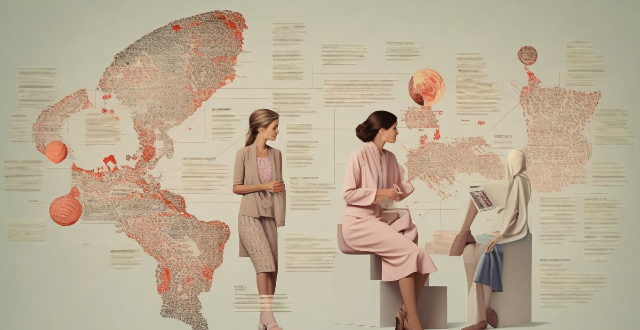
How have historical female figures influenced modern-day feminism and women's rights movements ?
This article explores how historical female figures have influenced modern-day feminism and women's rights movements. It discusses early pioneers like suffragettes and abolitionists, civil rights era figures such as Rosa Parks and Coretta Scott King, second-wave feminists including Betty Friedan and Gloria Steinem, and modern-day feminists like Malala Yousafzai and the #MeToo movement. These individuals have played crucial roles in shaping the course of feminism and women's rights movements, paving the way for future generations to fight for equality and justice.

What role does climate justice play in addressing the impacts of climate change on vulnerable communities ?
Climate justice is crucial for addressing the disproportionate impacts of climate change on vulnerable communities. It emphasizes equity, fairness, sustainability, participation, and transparency in environmental policies and practices. Vulnerable communities face unique challenges due to limited resources and dependence on natural resources. Key principles of climate justice include equity, fairness, sustainability, participation, and transparency. Strategies for achieving climate justice involve inclusive policy making, capacity building, access to finance, technology transfer, information dissemination, strengthening institutions, and promoting resilience. Collaborative efforts at various levels can help achieve a more equitable and resilient world for all.

How can we ensure that climate action is consistent with human rights ?
To ensure that climate action is consistent with human rights, we need to adopt a holistic approach that takes into account the social, economic, and environmental dimensions of sustainability. Some strategies include recognizing the interdependence between climate action and human rights, integrating human rights into climate policy, ensuring transparency and accountability, promoting participatory democracy, strengthening legal frameworks, and building capacity and providing support to vulnerable populations. By doing so, we can create a more equitable and just world for all.

How can we achieve climate justice in a world with increasing inequality ?
Achieving climate justice in a world with increasing inequality requires strengthening international cooperation, advocating for environmental justice, investing in renewable energy, implementing circular economy principles, establishing legal frameworks, promoting education and awareness, supporting sustainable agriculture, and fostering urban sustainability. These strategies aim to ensure that all people have equal access to resources and protections from climate change, regardless of their socioeconomic status, race, or geographic location.
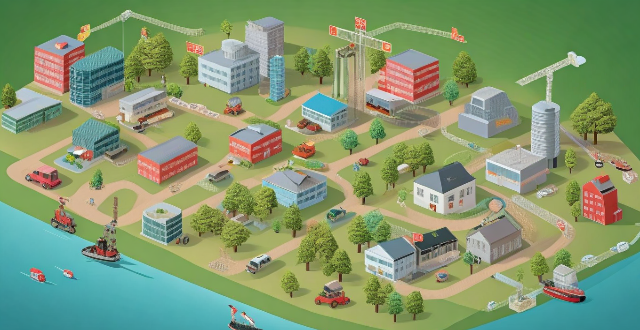
How can we balance economic development with climate action and human rights protection ?
Balancing economic development with climate action and human rights protection requires prioritizing sustainable development, integrating climate action into economic planning, protecting human rights, and collaborating across sectors. Governments and businesses should adopt policies and practices that promote renewable energy sources, reduce greenhouse gas emissions, encourage investment in green technologies, support small-scale farmers, promote fair trade practices, develop national climate plans, invest in research and development of new technologies, provide incentives for eco-friendly behaviors, ensure equal access to education, healthcare, and other basic services, protect the rights of marginalized communities, promote gender equality, enforce laws that protect workers' rights, establish cross-sectoral partnerships, encourage dialogue and consultation between stakeholders, support local initiatives, and encourage international cooperation.

Can you explain the concept of intergenerational climate justice ?
Intergenerational climate justice is a concept that deals with the ethical implications of climate change on future generations. It emphasizes the responsibility of the current generation to take actions that will not harm the well-being and quality of life of future generations. The concept is rooted in the idea that every generation has a duty to preserve the planet for those who will come after them. The key elements of intergenerational climate justice include ethical responsibility, sustainable development, intergenerational equity, and climate change mitigation and adaptation. These components are necessary to ensure the well-being of future generations and promote social justice by addressing the disproportionate impact of climate change on vulnerable populations. The importance of intergenerational climate justice cannot be overstated as it recognizes that climate change is a global issue that affects everyone, regardless of age or location. By taking action now, we can help ensure a better future for our children and grandchildren.

What is the relationship between immigration policies and human rights issues ?
Immigration policies significantly impact human rights issues by determining who is allowed to enter a country and under what conditions. Key areas of concern include protection of refugees and asylum seekers, family reunification, labor rights, and non-discrimination. Policies should ensure the safety and well-being of refugees, facilitate family reunions without undue delay, protect migrant workers from exploitation, and promote equality in access to education, healthcare, and social services. Countries must uphold these principles to ensure fair and just treatment for all individuals, regardless of their immigration status.
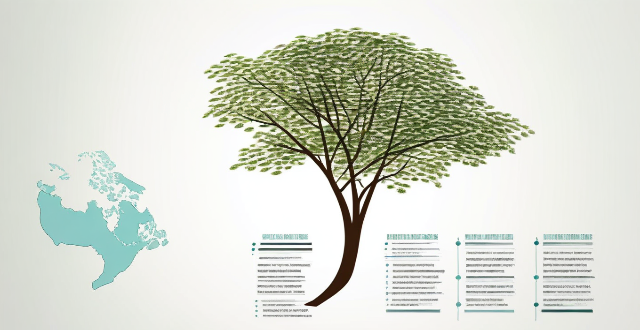
Can you provide examples of climate justice in action ?
Climate justice is a concept that recognizes the disproportionate impacts of climate change on vulnerable populations and communities. It emphasizes the need for equitable solutions that address both the causes and consequences of climate change, ensuring that those most affected by environmental harm have a voice in decision-making processes. Examples of climate justice in action include renewable energy adoption, green infrastructure and natural solutions, climate education and awareness, and climate policy and advocacy. These initiatives aim to mitigate the effects of climate change while building a more equitable society that can thrive amidst changing environmental conditions.

How does climate ethics relate to the concept of intergenerational justice ?
Climate ethics and intergenerational justice are important concepts that guide us in making decisions that promote a more equitable and sustainable future for all generations. Intergenerational equity, the precautionary principle, and sustainable development are key principles that should be considered when making decisions about resource use and emissions reductions. Governments, businesses, and individuals can all play a role in promoting climate ethics and intergenerational justice by adopting sustainable practices and supporting policies that prioritize climate action.

What are the ethical implications of climate change and how can we address them ?
Climate change has significant ethical implications affecting nature, justice, and future generations. The discussion explores these dimensions and suggests strategies to address them, including respecting nature, ensuring intergenerational equity, promoting justice in climate action, and implementing policy initiatives, technological innovations, and social change to mitigate climate impacts.

How does climate change affect the rights of marginalized communities ?
Climate change disproportionately affects marginalized communities, impacting their rights in several ways: loss of territory and habitat, degradation of natural resources, increased disease risk, limited access to healthcare, loss of livelihoods, inequality in adaptation and mitigation efforts, loss of cultural heritage, and displacement and migration. Addressing these challenges requires global action that prioritizes the needs and rights of vulnerable groups.
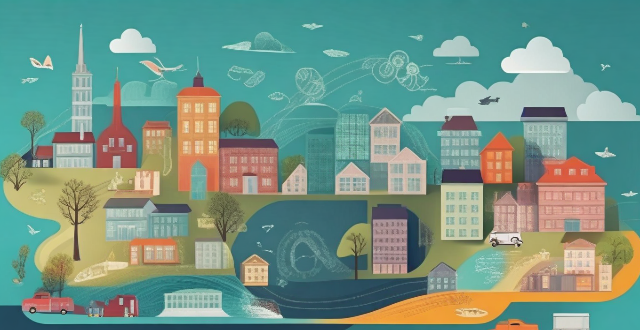
How does the Paris Climate Agreement address climate justice ?
The Paris Climate Agreement, adopted in 2015, emphasizes climate justice and the need for all countries to take action to limit global warming. It recognizes the unequal impacts of climate change on vulnerable communities and developing countries, and provides mechanisms for financial support, capacity building, and loss and damage compensation. The agreement aims to create a more equitable and just response to the global challenge of climate change.
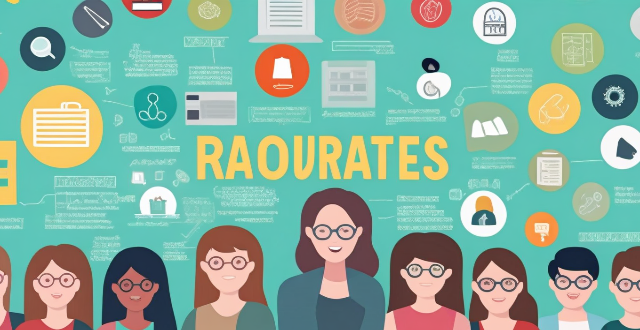
How has technology influenced women's empowerment and rights ?
The text discusses the impact of technology on women's empowerment and rights, highlighting various areas such as education, economic participation, health, social activism, and policy influence. It emphasizes how online learning platforms, e-commerce, telemedicine, social media, and digital security tools have transformed opportunities for women. Furthermore, it underscores the importance of leveraging technology to promote gender equality and women's rights globally.
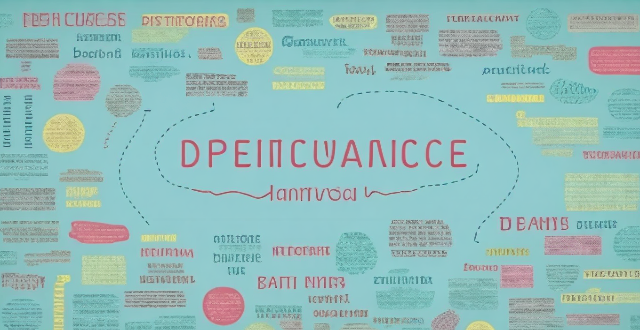
What is the definition of privacy rights ?
The text discusses the definition and importance of privacy rights, which are fundamental human rights that allow individuals to control access to their personal information and protect themselves from unreasonable interference or intrusion into their private lives. Privacy rights include the ability to choose what information about oneself is disclosed and to whom, as well as the power to determine how that information is used. The key aspects of privacy rights include control over personal information, protection from unreasonable interference or intrusion, and autonomy and self-determination. Privacy rights are essential for maintaining individual freedom and dignity, promoting trust and confidence in society, and creating a more just and equitable world where everyone has the opportunity to live their lives with dignity and autonomy.
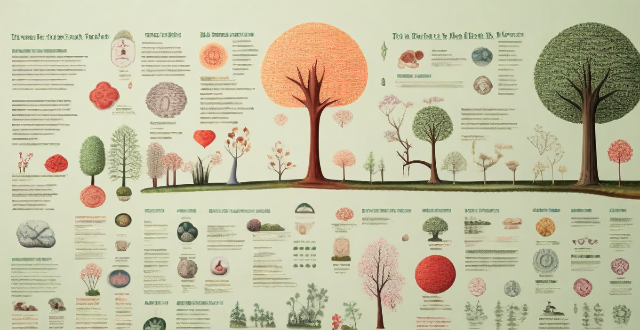
What is the relationship between climate change and environmental racism, and how can we address this issue through climate justice ?
Climate change and environmental racism are interconnected issues that disproportionately affect marginalized communities. The relationship between the two is multifaceted, involving displacement, health impacts, economic disparities, infrastructure vulnerabilities, and limited access to information and resources. To address these issues, pursuing climate justice is crucial, which involves ensuring equal representation in climate policy decisions and equitable distribution of benefits and burdens associated with climate action. Key strategies for achieving climate justice include community engagement, equitable resource allocation, health protection measures, economic opportunities, infrastructure resilience, access to information, legal protections, and global cooperation.

What are the legal frameworks for addressing climate change and human rights ?
The text discusses the various legal frameworks that exist to address climate change and human rights, including international agreements, national laws, and regional regulations. It highlights the importance of a multifaceted approach to tackle this complex issue and emphasizes the need to protect vulnerable communities' rights in the process. The text also provides examples of specific initiatives taken by different entities such as the United Nations, the United States, the European Union, the African Union, and the Association of Southeast Asian Nations. Overall, the text suggests that by working together at these different levels, we can create a more equitable and sustainable future for all.

How have recent data breaches impacted public perception of privacy rights ?
The text discusses the impact of recent data breaches on public perception of privacy rights. It highlights increased awareness of privacy risks, demands for stronger protections, loss of trust in institutions, and a shift towards privacy-focused technologies. The text emphasizes the importance of prioritizing privacy rights to ensure that personal information remains secure and protected.

How does climate change impact human rights ?
The impact of climate change on human rights is multifaceted and far-reaching. It affects health and well-being, food security, water access, displacement and migration, and indigenous rights. Extreme weather events can cause physical harm and death, while rising temperatures can lead to an increase in infectious diseases. Changes in temperature and precipitation patterns can disrupt agricultural production, leading to crop failures and food shortages. Water scarcity can occur as glaciers and snowpacks melt faster than they can be replenished. Displacement and migration can have serious consequences for safety, security, and rights. Indigenous communities are often particularly vulnerable to the impacts of climate change because they rely heavily on natural resources for their livelihoods and cultural practices.

Are there any international laws or treaties related to privacy rights ?
The text discusses several international laws and treaties related to privacy rights, including the European Convention on Human Rights (ECHR), the General Data Protection Regulation (GDPR), the Charter of Fundamental Rights of the European Union (CFR), and the International Covenant on Civil and Political Rights (ICCPR). These documents provide individuals with protection against unlawful interference with their private lives, homes, and communications.

Can climate change be considered a human rights issue ?
The text discusses the impact of climate change on human rights, focusing on health and safety, access to resources, displacement and migration, and intersectionality. It argues that climate change can be considered a human rights issue because it has the potential to violate several fundamental rights enshrined in international law. The text concludes that addressing climate change is crucial for protecting and promoting human rights globally.

In what ways do governments regulate privacy rights ?
Governments regulate privacy rights through legislation, enforcement agencies, self-regulation, and public awareness campaigns. Legislation defines what constitutes personal information and sets guidelines for its collection, use, and disclosure. Enforcement agencies oversee the implementation of privacy laws and handle complaints from individuals regarding the misuse of their personal information. Self-regulation encourages industry groups to develop codes of conduct or standards that promote privacy protection. Public awareness campaigns educate citizens about their privacy rights and how to protect themselves online.

What are the responsibilities of governments in addressing climate change and protecting human rights ?
Governments worldwide have a crucial role in addressing climate change and protecting human rights. Their responsibilities include legislation, public awareness, research, international cooperation, adaptation measures, protection of human rights, alignment with Sustainable Development Goals, and monitoring progress. By taking proactive steps in these areas, governments can create a sustainable future for all citizens while respecting their fundamental rights.
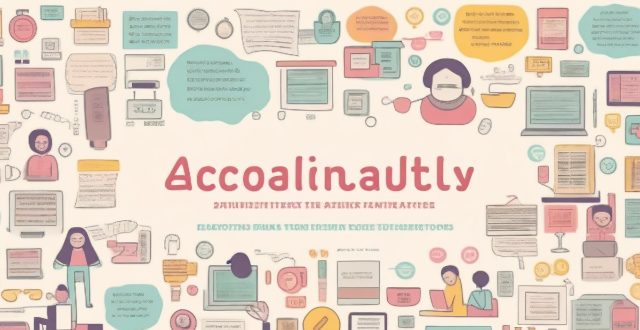
Can social media platforms be held accountable for breaches of privacy rights ?
The article discusses the accountability of social media platforms for privacy rights breaches and outlines legal frameworks, challenges, and best practices to ensure user data protection.